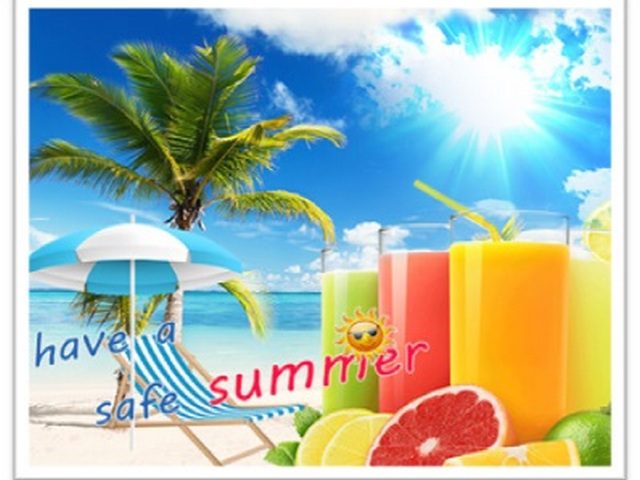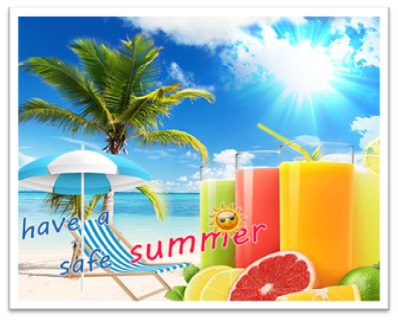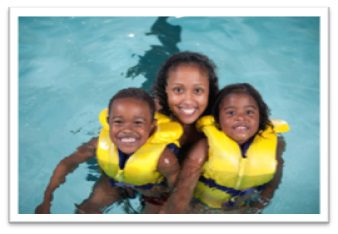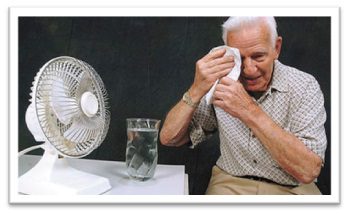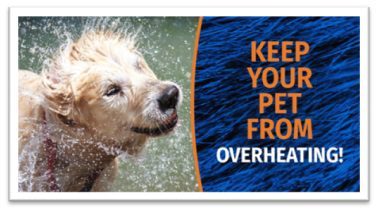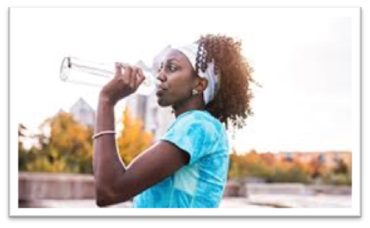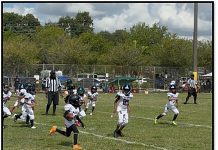Summer is here again, and with it, comes some time to settle in, slow down, and hopefully enjoy some of life’s simple pleasures.
Please remember that this time of the year also means school is out, which means more children out playing, and more adults out exercising or enjoying the weather. Please always be aware of pedestrians, bicycle riders, runners, mopeds and motorcycles. It’s always a good idea to look twice and save a life.
It’s that time of year again, when the temperature rises and our parks are filled with West Park residents enjoying barbecues and picnics with friends and family.
Safety tips for the pool:
As the weather continues to get warmer and our pools look like an attractive place to hang out, I would like to reiterate the absolute importance of summer safety. It is imperative that swimming pools are safe and that we are vigilant in monitoring our children at all times. Children with no knowledge of swimming should not be allowed in or around the pool and it’s always good to get kids to swimming classes from an early age.
We can’t just rely on pool fences, we need to ensure that our kids are appropriately supervised at all times when playing. We teach our kids about the importance of stranger danger and road safety – parents must also understand the importance of pool safety and convey these messages to their children.
I cannot reiterate the importance of swimming pool safety. However, with a proper safety fence and appropriate precautions, including constant supervision, swimming pools can mean hours of fun for our kids this summer.
Safety tips for kids:
• Have kids wear a properly fitted helmet when riding a bike, skateboard, scooter or rollerblading.
• Keep a shock absorbing surface under and around home playground equipment. Always supervise kids on play equipment.
• Use caution with outdoor grills when children are present.
• Limit sun exposure for kids and infants.
• Apply sunscreen, even on cloudy days, and reapply every two hours, or after swimming.
• Keep children hydrated-drink plenty of water.
• Wear light colored clothing.
• Never play barefoot on a playground.
Safety tips for seniors:
As our bodies age, skin and fat tissue, the body’s insulators, tend to thin. Because of that change, seniors regulate temperature less efficiently, putting them at greater risk than others from heat-related health problems. Signs of dehydration or heat exhaustion are less pronounced in seniors, who:
• Tend to perspire less than younger people—so their bodies don’t shed heat as easily as they once did.
• May lose some of their sense of thirst and not feel thirsty until severe dehydration has set in.
• May take high blood pressure and heart disease medications that remove salt and fluids from the body. These medications, coupled with heat, can cause dehydration—leading to confusion, organ damage and even death.
Here are few additional health tips for seniors:
• Slow down. Strenuous activity in extremely hot weather adds strain to the heart. If you must be active, choose the cooler early morning or evening hours.
• Take regular breaks. If you show signs of heat-related illness when engaging in physical activity on a warm day, stop, find a cool place, drink fluids and apply cool compresses.
• Eat small meals and eat more often. Avoid foods that are high in protein, which increase metabolic heat. Sandwiches, salads, fresh fruit and vegetables are good choices.
• Discuss with your doctor how medications and/or chronic conditions may affect your body’s ability to manage heat.
• Take the heat seriously. Rapid heartbeat, dizziness, diarrhea, nausea, headache, chest pain, fatigue, clammy skin, mental changes or breathing problems are warning signs to seek immediate medical attention.
Safety Tips for your pets:
Your pet is part of your family. And just like any other member of the family, pets can become ill or injured. Would you know how to care for your pet in an emergency? Here are a few tips:
• Monitor your pet closely whenever he or she is outside during the summer months.
• Provide plenty of water and shade for your pets while they are outdoors so they can stay cool.
• Don’t leave your pet outside unattended on a hot day, even in the shade. Shade can move throughout the day, and pets can overheat and become ill quickly
• Never leave a pet unattended in a parked car, even for “just a minute.” An 85° F day can skyrocket a car’s interior to deadly levels—120-130° F—in minutes, even with the windows slightly open or when parked in the shade. The mild days of spring and fall can also pose great danger.
• Limit exercise to early morning or evening hours. Remember that asphalt can become scorching and burn your pet’s paws.
• Hose down your dog before work, at lunch or whenever you can to provide extra cooling on a hot day.
• Keep your pet well-groomed and clipped. If your dog has very thick hair, its fur may trap too much heat. Clipping it in summer will help keep your pet cool.
• Use sunscreen on your dog’s nose and ears if necessary. Dogs with light-colored noses or fur are especially vulnerable to sunburn and skin cancer.
• Keep your pet away from crowded summer events like concerts, fairs and fireworks. Loud noises and crowds combined with the heat and humidity can be stressful and dangerous.
General Heat Safety Tips:
Summertime means activities and fun under the sun! But even if we love to spend time outdoors in the sun, we must all be careful not to let a heat-related illness spoil the day.
• Never leave children or pets alone in closed vehicles, where temperatures can reach 140o Fahrenheit (F) within minutes. Exposure to such high temperatures can kill in minutes.
• Stay hydrated. Carry water (or juice) and drink continuously even if you don’t feel thirsty. Injury and death can occur from dehydration, which can happen quickly and unnoticed. Your body needs water to keep cool and it is the safest liquid to drink during heat emergencies.
• Air conditioning provides the safest escape from extreme heat. To maximize its benefits:
1. Check air conditioning ducts for proper insulation.
2. Vacuum and/or change air conditioner filters frequently during periods of high use to provide more cool air.
• Eat small meals of carbohydrates, salads and fruit, and eat more often. Avoid foods high in protein, because they increase metabolic heat.
I hope that you can take some time this summer to slow down a bit and look around at what West Park has become, not merely a city, but a community with its own identity and a sense of place – a place to call home. Have a blessed summer West Park!
Remember to contact me at City Hall with your ideas, suggestions or concerns. I represent you and appreciate your input into the continued success of our beloved city. I can be reached at (954) 329-8990 or email fbrunson@cityofwestpark.org.


